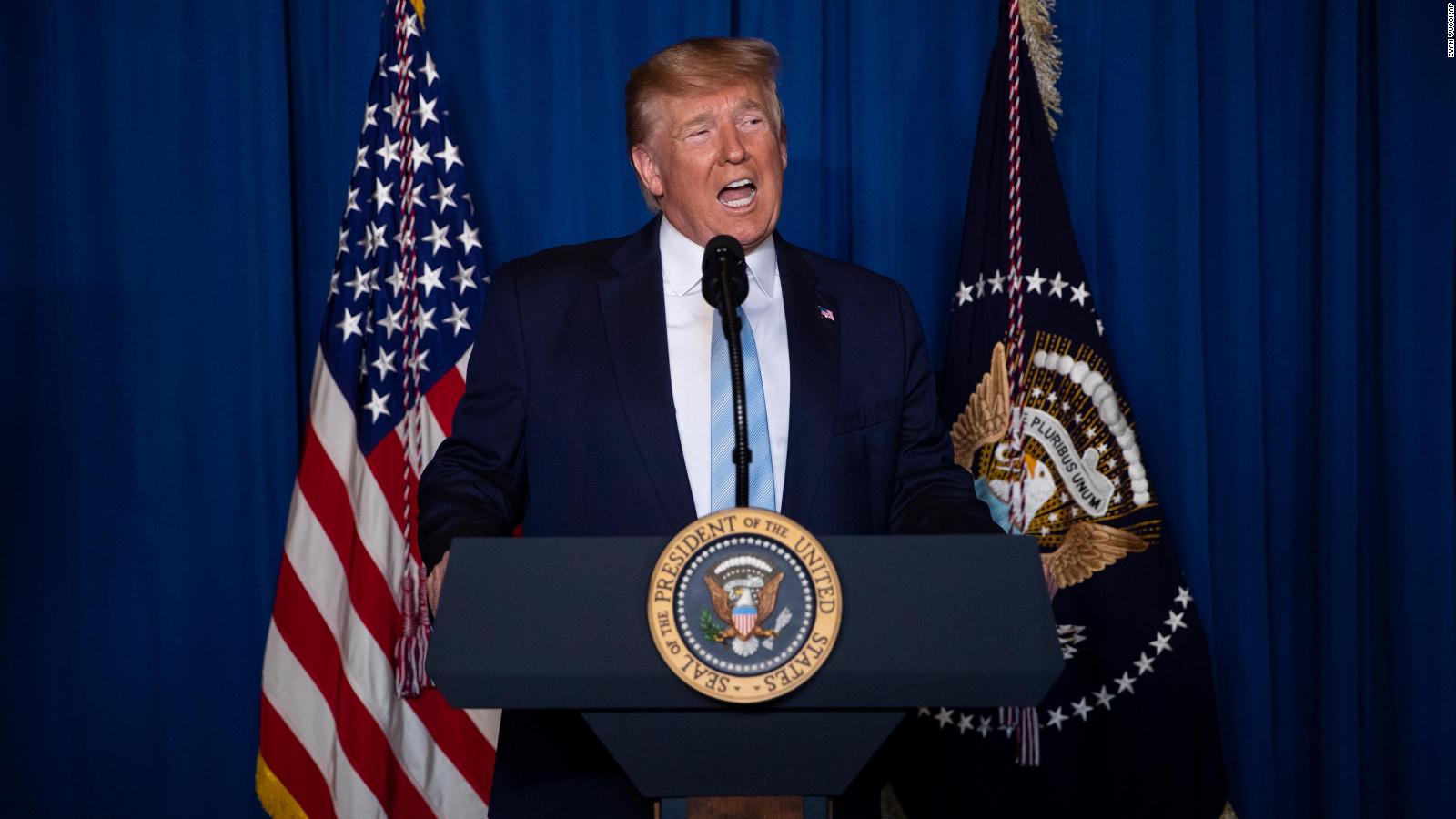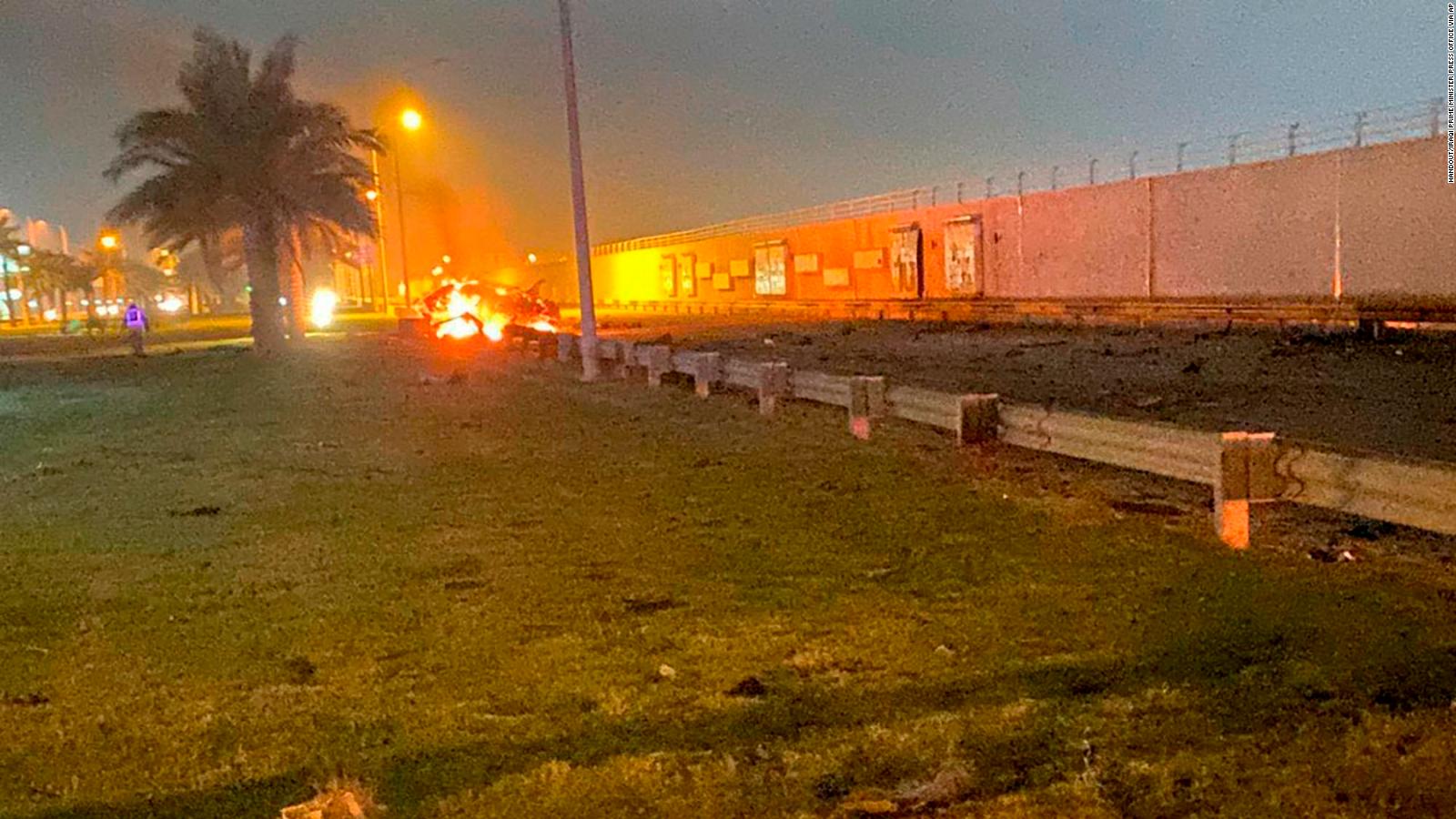Here’s what you need to know:

Teeming crowds chant “Death to America.”
Throngs of people chanting “Death to America” crowded the streets of Tehran on Monday as the country mourned Maj. Gen. Qassim Suleimani, whose funeral was held in the Iranian capital. The military commander was hailed as a martyr, and his successor swore revenge.
“God the almighty has promised to get his revenge, and God is the main avenger,” vowed Esmail Ghaani, the Iranian general who will take over the Quds Force, the foreign expeditionary arm of Iran’s elite paramilitary organization, the Islamic Revolutionary Guard Corps. “Certainly actions will be taken,” he added.
State-run news outlets reported that “millions” had gathered in Tehran, and images showed of a sea of mourners, many wearing black and waving the nation’s flag in an outpouring of grief.
General Suleimani was killed by the United States on Friday in Baghdad in a drone strike. American officials said the general had ordered assaults on Americans in Iraq and Syria and was planning a wave of imminent attacks.
His killing has set off fears of escalating retaliatory actions by Iran and the United States, and of a broader regional conflict. In the aftermath of the attack, Iran said it would no longer abide by a 2015 agreement to suspend uranium production.
Ayatollah Ali Khamenei, Iran’s supreme leader, wept openly at the funeral while offering prayers over the general’s coffin. Ayatollah Khamenei had a close relationship with the general, who was widely considered to be the second most powerful man in Iran.
General Suleimani’s daughter, Zeinab Suleimani, said in a eulogy that the United States and Israel faced a “dark day.”
“You crazy Trump, the symbol of ignorance, the slave of Zionists, don’t think that the killing of my father will finish everything,” she said at the funeral.
The general’s funeral was attended by a broad swath of Iranians, including reformers who oppose the government of President Hassan Rouhani but who perceived the killing as an attack on all of Iran.
“I felt like he was our safety umbrella spread above Iran,” said Amir Ali, 22, a university student. “I felt safe knowing he was out there.”
Trump doubles down on threat to attack Iran’s cultural sites.
President Trump on Sunday doubled down on his threats to attack Iranian cultural sites and warned of a “major retaliation” if the Iranian government planned tit-for-tat attacks in the aftermath of the killing of a senior military commander.
Mr. Trump defended the drone strike that killed General Suleimani.
Earlier on Sunday, Mr. Trump said in a tweet that the United States had selected 52 Iranian sites, some “at a very high level & important to Iran & the Iranian culture” to attack in the event of Iranian retaliation.
That prompted the Iranian foreign minister, Mohammad Javad Zarif, to say that “targeting cultural sites is a war crime.”
But on Sunday evening, aboard Air Force One on his way back from his holiday trip to Florida, Mr. Trump did not back down.
“They’re allowed to kill our people,” he said to reporters. “They’re allowed to torture and maim our people. They’re allowed to use roadside bombs and blow up our people. And we’re not allowed to touch their cultural site? It doesn’t work that way.”
Iran pledges to restart uranium enrichment.
Iran’s government said it would no longer abide by a commitment it made under a 2015 nuclear deal, limiting its enrichment of uranium.
The decision to lift all restrictions on the production of nuclear fuel spelled the effective end of the nuclear deal, experts said, though Iran left open the possibility that it would return to the limits if sanctions were lifted.
“It’s finished. If there’s no limitation on production, then there is no deal,” said David Albright, president of the Institute for Science and International Security, a nonprofit in Washington.
The announcement came after Iran’s National Security Council held an emergency meeting on Sunday to discuss the country’s nuclear policy in the aftermath of General Suleimani’s assassination.
“The Islamic Republic of Iran will end its final limitations in the nuclear deal, meaning the limitation in the number of centrifuges,” Iran said in a statement. “Therefore Iran’s nuclear program will have no limitations in production including enrichment capacity and percentage and number of enriched uranium and research and expansion.”
The announcement followed several steps by Iran to move away from the terms of the agreement, nearly two years after Mr. Trump withdrew the United States from the deal. Since that renunciation, the Trump administration has imposed severe sanctions aimed at crippling Iran’s economy.
The nuclear agreement ended some economic sanctions on Iran in return for its verifiable pledge to use nuclear power peacefully.
Iran’s statement Sunday did not include details about its enrichment ambitions. And the country did not say it was expelling the inspectors who monitor its nuclear program.
Oil prices surge to more than $70 a barrel.
Oil prices surged and stock markets in Asia fell on Monday morning, as the impact of General Suleimani’s death ricocheted around the world.
The price of Brent oil, the international benchmark, jumped above $70 in futures trading as markets digested a steady flow of news over the weekend.
The sudden escalation in tensions in a region that supplies much of the world’s petroleum has roiled oil markets. The West Texas Intermediate, the American oil benchmark, rose 1.9 percent to $64.22 a barrel in futures trading.
Analysts at Capital Economics have warned that the price of oil could spike to $150 a barrel if the bellicose rhetoric between the two countries turned into action.
“The price of oil would soar in the event of full-blown military conflict in the Middle East,” said Alexander Kozul-Wright, a commodities economist at Capital Economics.
China condemns the U.S. over Suleimani’s death.
Chinese state-controlled news media on Monday condemned the United States for the killing of General Suleimani, amplifying China’s foreign minister, Wang Yi, who warned of a “vicious cycle of confrontation” between the United States and Iran.
“Solving the conflicts between the United States and Iran can’t be achieved through military strikes or extreme pressure,” People’s Daily, the Communist Party mouthpiece, said in an editorial. The editorial appeared under the pen name “Zhong Sheng,” which is widely used to offer the paper’s views on foreign affairs.
The editorial likened the latest crisis to the United States-led occupation of Iraq in 2003 and Western intervention in Libya in 2011.
“The facts prove time and again that unilateral resorts to armed force will not solve problems,” the paper said. “Instead the outcome will be the opposite, leading to a cycle of confrontation that will be difficult to clean up.”
China has been reducing its imports of oil from Iran as United States sanctions have deepened, but it remains heavily dependent on crude from the Middle East, especially from Saudi Arabia. Beijing has also tried to shore up the international agreement that curtailed Iran’s nuclear development.
On Sunday, the Chinese embassy in Washington warned Chinese citizens to be extra careful about their safety in the wake of the crisis with Iran.
Fears of worldwide conflict were shared across social media over the weekend, but Xinhua, China’s main official news agency, published a commentary saying that outright war between the United States and Iran still seemed unlikely.
“Faced with the 2020 election, Trump has deliberately used attacking Iran to shift the focus from domestic tensions and add to his electoral chips,” read the commentary, “but he has no intention of launching a war.”
Iraq’s Parliament votes to oust U.S. coalition troops.
Iraqi lawmakers voted 170-0 on Sunday in favor of expelling American troops from their country.
The vote was not final and many lawmakers did not attend the session. But Prime Minister Adel Abdul Mahdi drafted the language and submitted the bill to Parliament, leaving little doubt about his support.
The drone strike that killed General Suleimani also killed Abu Mahdi al-Muhandis, the deputy head of the Iraqi Popular Mobilization Forces, a coalition of Iranian-backed militias.
The attack was viewed in Iraq as a violation of the nation’s sovereignty, and the country’s Foreign Ministry said on Sunday that it had summoned the American ambassador in Baghdad.
Iraq’s Parliament was divided over demands from angry citizens to expel American troops. Many of its 328 members, primarily Kurds and Sunnis, did not attend Sunday’s session and did not vote. In his speech to lawmakers, Mr. Mahdi laid out two possibilities: to either quickly end the presence of foreign forces in Iraq, or to set a timeline for their expulsion.
The measure approved by Parliament did not include a timeline, and only instructed the government to end the presence of foreign forces in Iraq. Officials said no decision had been made about whether any American troops would be able to stay, or under what conditions.
Iranian officials reacted to the vote with congratulatory messages and said General Suleimani’s death had delivered a huge victory over the United States.
Hesameddin Ashena, a top adviser to President Rouhani, in a Twitter post, said: “Expanding friendship with our neighbors and domestic unity are the best gifts for protecting our national security. America and Israel are the only winners of a rift between neighbors.”
Asked about the vote on Sunday, Secretary of State Mike Pompeo said that the United States would continue to battle the Islamic State. “It is the United States that is prepared to help the Iraqi people get what it is they deserve and continue our mission there to take down terrorism from ISIS and others in the region,” he said in an interview on the CBS program “Face the Nation.”
Reporting was contributed by Russell Goldman, Alexandra Stevenson, Farnaz Fassihi, Christopher Buckley, Alissa J. Rubin, Ben Hubbard, Megan Specia, Thomas Gibbons-Neff, Eric Schmitt, Vivian Yee, David D. Kirkpatrick, Edward Wong, Tess Felder, Yonette Joseph, Mariel Padilla and Maggie Haberman.
https://news.google.com/__i/rss/rd/articles/CBMiTWh0dHBzOi8vd3d3Lm55dGltZXMuY29tLzIwMjAvMDEvMDYvd29ybGQvbWlkZGxlZWFzdC9pcmFuLXN1bGVpbWFuaS10cnVtcC5odG1s0gFRaHR0cHM6Ly93d3cubnl0aW1lcy5jb20vMjAyMC8wMS8wNi93b3JsZC9taWRkbGVlYXN0L2lyYW4tc3VsZWltYW5pLXRydW1wLmFtcC5odG1s?oc=5
2020-01-06 10:20:00Z
52780536809258



